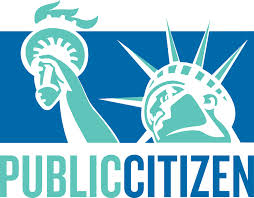pharmaceutical industry
See the following -
We Cannot Do Modern Science Unless It's Open
Open is about sharing and collaboration. It's the idea that "we" is more powerful, more rewarding and fulfilling than "I". I can't promise jobs, but I do know that open is becoming very big. Governments and funders are pushing the open agenda, even though academics are generally uninterested or seriously self-interested... Read More »
- Login to post comments
What Pain Killers Can Teach Us About Open Government
Looking for an example of how open government data is being used by the private sector? Google the words “aspirin,” “ibuprofen” or “amoxicillin” and check out the upper right hand corner of the webpage. Read More »
- Login to post comments
Who Broke America’s Jobs Machine?
If any single number captures the state of the American economy over the last decade, it is zero. That was the net gain in jobs between 1999 and 2009—nada, nil, zip. By painful contrast, from the 1940s through the 1990s, recessions came and went, but no decade ended without at least a 20 percent increase in the number of jobs. Read More »
- Login to post comments
Why All Pharmaceutical Research Should Be Made Open Access
The government wants to make all publicly funded research available – but the same must be demanded of pharmas also Read More »
- Login to post comments
Why Are Older People Taking as Many as 30 Big Pharma Drugs?
Seniors represent only 13% of the population, but they take over 40% of pharmaceutical drugs in the US. In the UK, 45% of prescriptions are doled out to individuals over the age of 65 years. The practice of polypharmacy has never been more acute than it is in the modern era. So why are we drugging the elderly so profoundly?
- Login to post comments
Why Branding Obesity As A Disease Is A Step In The WRONG Direction...
The documentary film Hungry For Change1 is another revolutionary look at food and nutrition from the creators of the best-selling film Food Matters. Read More »
- Login to post comments
Why Chemotherapy That Costs $70,000 In The U.S. Costs $2,500 In India
By rejecting patent applications, developing countries have kept down the costs of much-needed medications. Can they continue to do so without harming efforts to develop new drugs? Read More »
- Login to post comments
Why Do Medicare, Medicaid And Veterans Affairs Deal With Drug Costs Differently?
Countries sometimes do things differently from other countries or gain reputations for doing certain things well or poorly. But within a country, within the same federal government, does it make sense to do things differently among departments or programs that are providing essentially the same service? Read More »
- Login to post comments
Why Open Source Drug Discovery Needs A “Champion”
Yesterday I attended the Southeast Venture Philanthropy Summit held in Chapel Hill. Attendees included VC, philanthropy types, disease foundations (big and small), bioscience organizations, scientists from all over the country... Read More »
- Login to post comments
WikiLeaks Publication of Complete, Final TPP Intellectual Property Text Confirms Pact Would Raise Costs, Put Medicines Out of Reach
 WikiLeaks’ publication today of the final Trans-Pacific Partnership (TPP) Intellectual Property chapter text verifies that the pact would harm public health by blocking patient access to lifesaving medicines, Public Citizen said today. The latest leak of a secret TPP text reveals how the TPP would roll back the “May 10 Agreement” reforms brokered in 2007 between Democratic congressional leaders and the George W. Bush administration. It also reveals the contentious “death sentence” clause on biologics, or biotech drugs, which roiled TPP talks in Maui and Atlanta.
WikiLeaks’ publication today of the final Trans-Pacific Partnership (TPP) Intellectual Property chapter text verifies that the pact would harm public health by blocking patient access to lifesaving medicines, Public Citizen said today. The latest leak of a secret TPP text reveals how the TPP would roll back the “May 10 Agreement” reforms brokered in 2007 between Democratic congressional leaders and the George W. Bush administration. It also reveals the contentious “death sentence” clause on biologics, or biotech drugs, which roiled TPP talks in Maui and Atlanta.
- Login to post comments